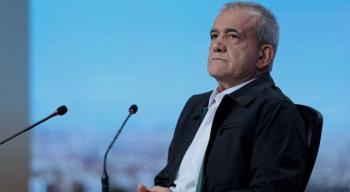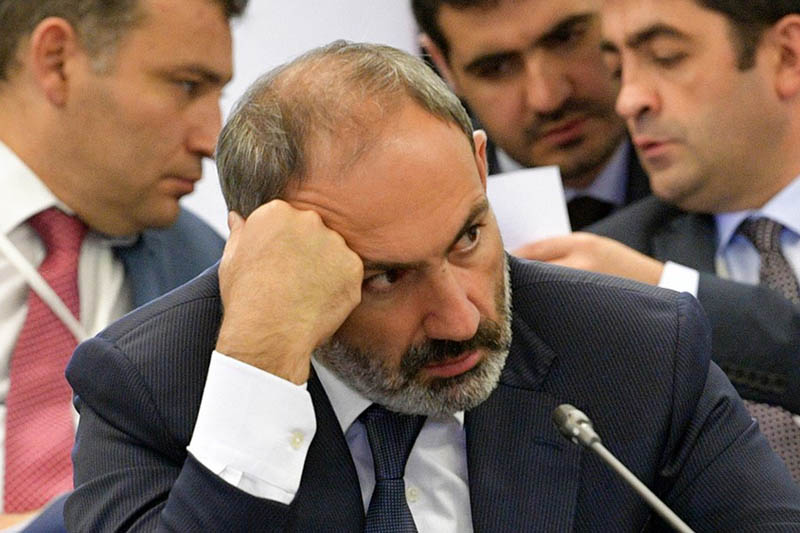Alwaght- Several months after the peace deal between Azerbaijan and Armenia to end the Karabakh dispute, the repercussions of the crisis remain impacting the political scene in Yerevan. Since the very beginning of peace agreement, a significant part of the citizens and political factions blamed the Prime Minister Nikol Pashinyan as the main cause of defeat and his acceptance of peace as a betrayal of the country. The situation has developed to an extent that opposition parties and senior military officials are demanding the resignation of the PM.
Even in the middle of this critical situation, the opposition of President Armen Sargsyan to the PM decision to dismiss the army chief has pushed the political mayhem to alarming levels.
Alwaght has talked to Hasan Beheshtipour, a Central Asian and Caucasus affairs expert, asking him questions about the current and future political situation in Armenia.
Pashinyan, cause of Armenian polarization
Shedding light on the current political crisis in Armenia, Mr Beheshtipour said that the Armenian political community with election of Pashinyan in 2018 was polarized into two parts. After years of rule of the Karabakhi politicians, for the first time an individual came to power who was not one of them. The presence of Serzh Sargsyan in the post of PM kept the power in the hand of the Karabakhi politicians for years, especially that the president post was largely ceremonial.
“Since Pashinyan premiership, the society was officially divided into two poles and the defeat of the country sustained in the recent Karabakh war even deepened this polarization. That is, some remained loyal to Pashinyan and others blamed him for the defeat in the war. This exchange of blames came while the entire political system in the country was involved in the failure, not just one individual.”
Army chief meddling broadened the crisis
“Looking at the facts on the ground, it should be noted that Armenia illegally occupied about 7 regions in the 1990s, which was not recognized by the international community. The defeat in Karabakh war has now caused another political crisis in the country like the fire under the ashes. Meanwhile, the intervention of the Chief of General Staff of the country's army Onik Gasparyan has further caused the crisis to escalate.”
According to the Armenian constitution, intervention in the politics of the military personnel is banned. The PM also has no power to sack the army chief and this is one of the powers of the president.
Europe and Russia support Pashinyan government stay
The analyst continued that in the current situation, despite the pervasive crisis in Armenia, European countries, the US, and even Russia support the continuation of Pashinyan government. From the point of view of Europe and the US, Pashinyan is a figure close to the West, and the continuation of his premiership should be endorsed. In the eyes of the Russians, too, the current PM, as the endorser and main supporter of the Nagorno-Karabakh peace, must remain in power.
“All in all, Pashinyan currently has significant support both internally and externally, so it can be suggested that the time for his quitting the power has not come yet.”
Still, we should take into account that everything is possible in the politics, and there may be a scenario to remove him from power, Mr Beheshtipour said, adding that either the incumbent PM remains in power or another one replaces them, Karabakh crisis should be resolved principally. The solution on the one hand should recognize Azerbaijan sovereignty and on the other hand consider Armenian claims to Karabakh. Although this is hardly likely, finding such a formula is possible.
Army coup against Pashinyan without Moscow green light difficult
In the closing comments of the interview, Mr Beheshtipour talked about the possibility of a coup against the PM, saying that in the politics everything is possible. But coup in Armenia requires home and foreign support. We should focus, more than any other actor, on Russia. Moscow has substantial sway over Yerevan and this means that a coup unsupported by the Kremlin is somehow unlikely in Armenia.
“It should be known that a military coup will not solve any problem and would only mean finding a victim to the war defeat. In other words, a coup will put the whole blame on Pashinyan. Even if a coup takes place in Armenia, which is unlikely, the military personnel can hold the power for three months at the maximum and then an election should be immediately held.”



























